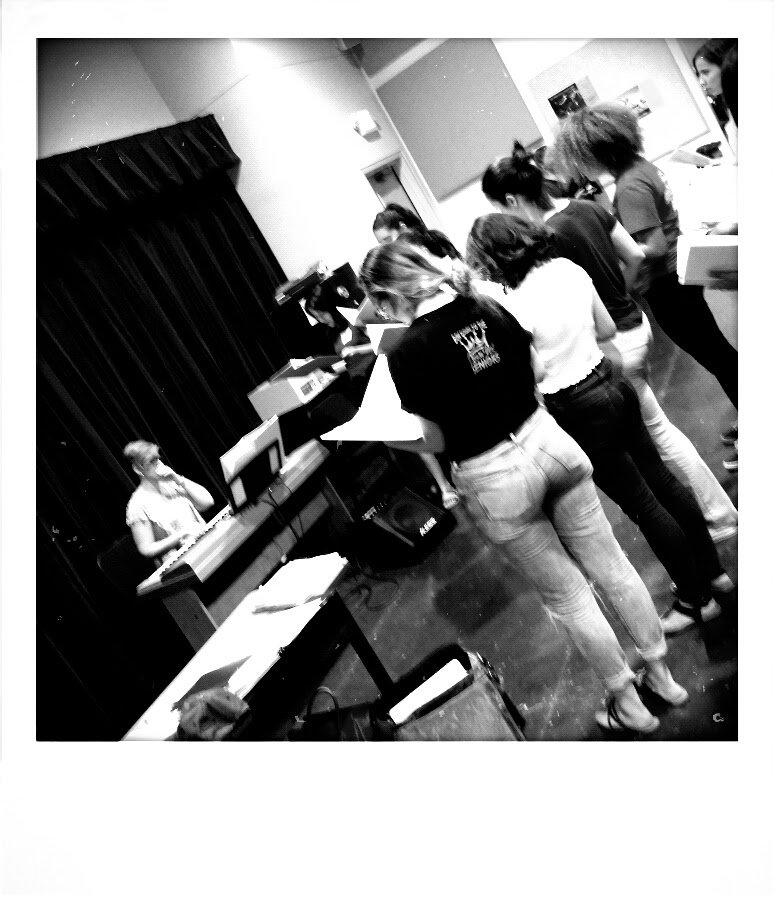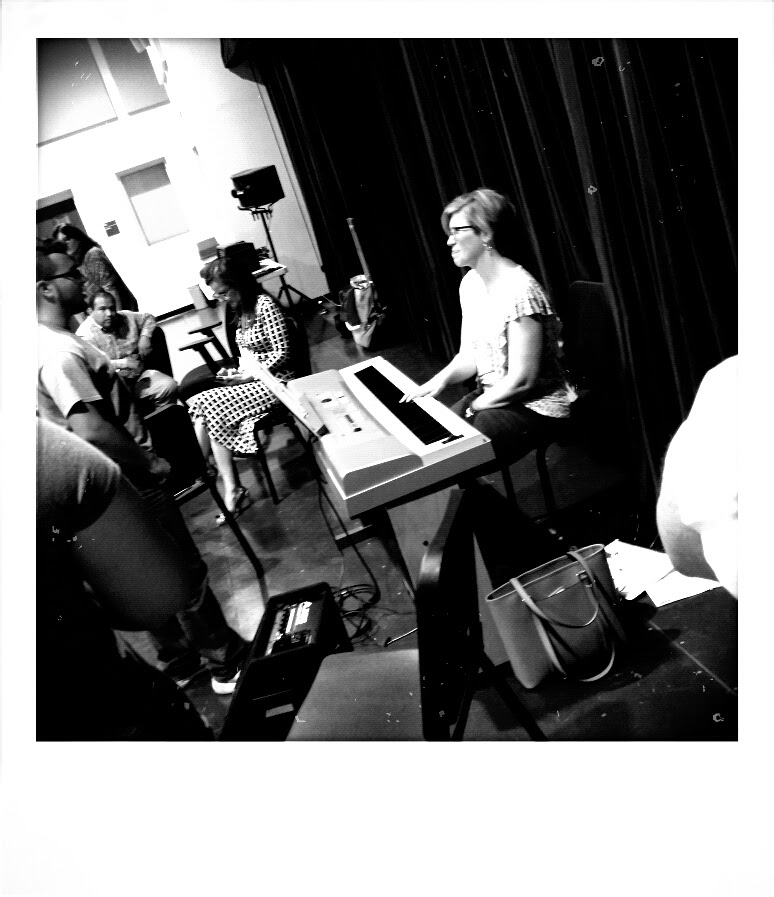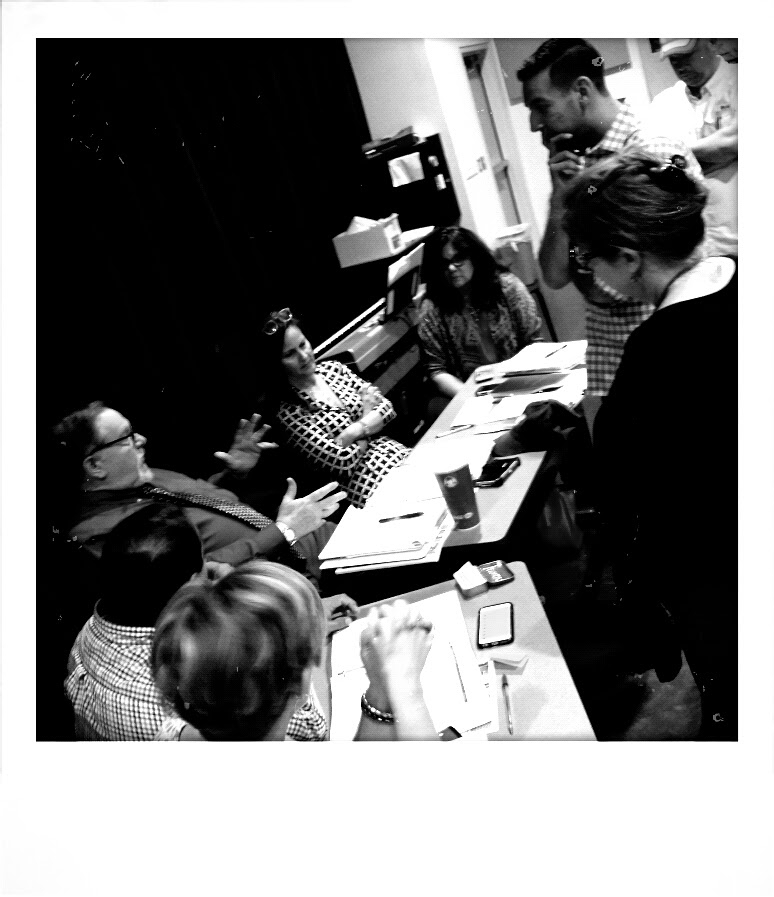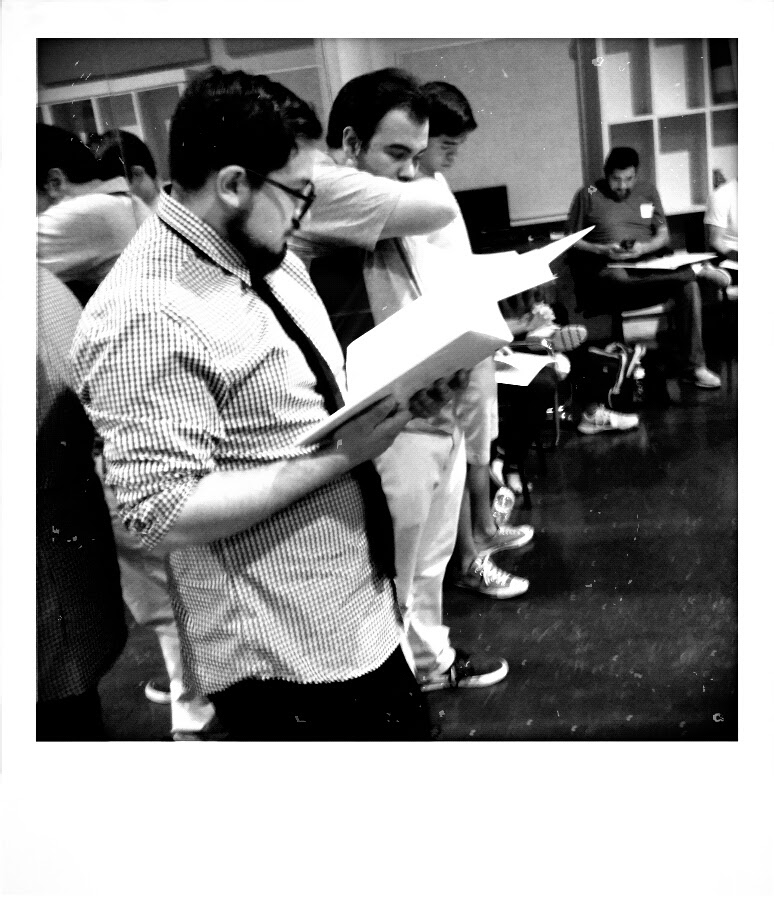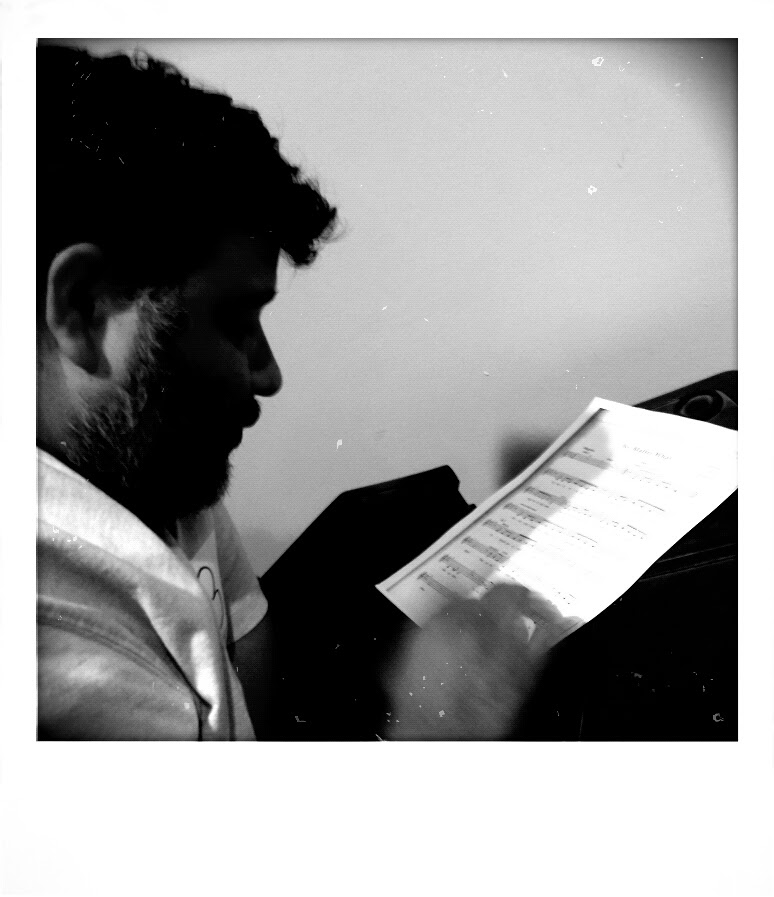I’m late.
I’m rushing into the dance studio inside the Visual and Performing Arts at LCC, walking in on four men singing one of the pieces from the musical – a warm up piece. They wrap up shortly after I set up my laptop and snap some photos. Seconds later, a new combination is up – three women, one little boy, five men.
Dana Crabtree, vocal director for the show, and as cheery as a Christmas candle, begins a new tune at the piano. Then, a new combo is called up, as the previous group sits.
Beautiful, the pleasure of hearing three grown women, in full flower, of voice and form, resounding voices singing the now modern classic “A Tale as Old as Time.” Three names, three women exuding a motherly, peaceful aura – the production directors are looking for their Mrs. Potts, each in turn.
There are two very different vibes going on. Outside the dance studio, in the hallway, the much smaller group chatters, jitters with anxious waiting. The group that have made the final is waiting to give their all to win their role – the role – any role. And inside the dance studio, there is mild sense of ease, a calming certainty that the roles are that much closer to being cast. The end of the road is at sight.
A vague imagining solidifies into puzzle pieces that will lock in the right combination to form the complete picture the directors have in mind.
I have walked into the final casting auditions for the roles of Cogsworth, Lumière, Babette, Belle’s father Maurice, Gaston, LaFou, little Chip, and Mrs. Potts. The combinations are reducing to two Babettes, two Lumières in contention.
Enter the Le Fous and Gastons. Gastons woo the Belles with song – manly men singing in deep tenors. Then up stands a tree – a tall, blonde, well-jawed man, a man with a voice as deep as he is tall, as golden as God blessed his hair.
And this kid is seventeen. Seventeen.
The Lumières are dismissed. Next up, the Le Fous. There are five Le Fous singing their hearts out to an ego-bruised Gaston. But since it’s late, and in order to quicken the process, it’s time to cut the singers mid-song. Those quick thank-you cuts can be hard to adjust to – especially when they’re trying to sing that there’s no man like Gaston
There’s a point at which those auditioning surrender to the process, and then a slow transformation into an actor as they lose themselves to the character. The ego surrenders to the role – even if they are still reading multiple parts. The tension has eased, the mood has lightened, people are enjoying themselves, enjoying their lines,
“Can we have all the silly girls? Can we have three silly girls at a time please?” the question is posed.
Those casting the play use data like “experience,” “maturity,” “number of roles,” “number of leading roles” as quantitative measurements like height, weight, age.
It is calculated magic to blend that which is unquantifiable into that which is quantitative, to measure magic and grow it to its correct size.
Trios of “silly girls” sing soprano in harmony to find the right harmony, the perfect, balanced equation, that if successful, will create magic on stage – a proper effort for a fairy tale.
The singing is done, and it’s time for the reading, and with smaller numbers, the process is less arduous, less unwieldy.
All the silly girls have left, and a gentle softness falls over the dance studio as all that remain are the Belles with their fathers, the Maurices, reading a tender scene in which each bolsters the other as they share their unpopular loves – books and inventing – and their insecurities.
And like that, the call backs end.
(Random thoughts/General Rules of Thumb:
– Alternate universe LeFous converging to sing the praises of one Gaston. Priceless.
– Getting laughs from the casting board is always a good sign.
– You can never be too silly when you’re reading for a silly girl.)
